- News
- Reviews
- Bikes
- Components
- Bar tape & grips
- Bottom brackets
- Brake & gear cables
- Brake & STI levers
- Brake pads & spares
- Brakes
- Cassettes & freewheels
- Chains
- Chainsets & chainrings
- Derailleurs - front
- Derailleurs - rear
- Forks
- Gear levers & shifters
- Groupsets
- Handlebars & extensions
- Headsets
- Hubs
- Inner tubes
- Pedals
- Quick releases & skewers
- Saddles
- Seatposts
- Stems
- Wheels
- Tyres
- Tubeless valves
- Accessories
- Accessories - misc
- Computer mounts
- Bags
- Bar ends
- Bike bags & cases
- Bottle cages
- Bottles
- Cameras
- Car racks
- Child seats
- Computers
- Glasses
- GPS units
- Helmets
- Lights - front
- Lights - rear
- Lights - sets
- Locks
- Mirrors
- Mudguards
- Racks
- Pumps & CO2 inflators
- Puncture kits
- Reflectives
- Smart watches
- Stands and racks
- Trailers
- Clothing
- Health, fitness and nutrition
- Tools and workshop
- Miscellaneous
- Buyers Guides
- Features
- Forum
- Recommends
- Podcast
TECH NEWS
The best pro bikes of Paris-Roubaix - with all of the best hacks
With Dylan Van Baarle crowned men's Paris-Roubaix champion for 2022, we've taken a look at the best of the bike tech from what is always an interesting race. Our own Liam Cahill was at the start in the morning snapping a few of the bikes belonging to riders expected to fight for that coveted cobble and nameplate in the showers.
Here are Liam’s pics of the bikes being ridden by Mathieu van der Poel, Wout van Aert, along with loads more interesting tech changes. For the full set of photos, check out the full gallery above, including the bikes of 2017 winner Greg van Avermaet of AG2R-Citroen, plus debutant Filippo Ganna of Ineos Grenadiers.
Van der Poel
This is only the second time that Mathieu van der Poel has ridden Paris-Roubaix – the Alpecin-Fenix rider was third last year, when Sonny Colbrelli of Bahrain Victorious took an emotional triumph on a rain-soaked and mud-splattered day in Northern France.
For years now, riders in Paris-Roubaix have carried an aide-memoire on their top tube or stem so they know exactly when the key seconds of pavé are coming up – here, the Alpecin-Fenix rider has highlighted the most difficult ones, which so often prove crucial to the result.
His nutrition plan for what many consider the toughest one-day race on the calendar is also outlined so he knows when to refuel. What’s the emoji after the exit from the Arenberg?
We’re wondering whether, on a day when due to the narrow roads making it near-impossible for team cars to get through, meaning they rope in as many staff and friends as possible to stand at the roadside holding up spare wheels or bidons, it’s where dad Adri – himself winner of two Monuments, the Tour of Flanders and Liège–Bastogne–Liège and third at Paris-Roubaix in 1986 – may be waiting to hand over a bottle?
Stock 54/40T chainrings for MvdP. It's also the latest Dura-Ace with the new power meter. That's not a choice that all of his competitors made.
30mm tyres were the order of the day and Van der Poel goes for the tubeless Vittoria Corsa Contol on his Shimano wheels. He's long been a fan of tubular, so what has changed his mind?
Wout Van Aert
Van Aert's Cervelo was set up with some surprising component choices.
Given the pounding the hands take from the pavé, many riders choose extra padding on the bars with two or even three layers of tape, as can clearly be seen on van Aert’s Cervélo here.
That 30mm Vittoria/Dugast tubular tyre was developed specifically to withstand the rigours of Paris-Roubaix and many teams choose to switch out their normal supplier for this one huge day of the year.
In the end, the tyres were a let down as Van Aert suffered a puncture. Then again, it's a lottery in this race.
In the past, Ambrosio rims were also favoured, though here van Aert has stuck to a pair of deep-section Dura-Ace wheels. We're just mentioning them for old time's sake.
Jumbo Visma have plenty of the latest Shimano Dura-Ace R9200 12-speed groupsets. But they switched back to their old 11-speed stuff for Roubaix. The reason? Some riders feel that they are having more mechanicals with the latest kit. But then they were probably switching back to their 10-speed groupsets when 11-speed came out.
And our other highlights...
Terrible Sharpie application. Must try harder next time.
The neatest application of sandpaper we saw.
These levers and allen keys were a common sight if you glanced at a seatpost.
Greg Van Avermaet chose this design from the kitchen worktop catalogue.
Nils Politt used his Tarmac SL7 rather than the Roubaix. The Roval bar is fully wrapped and note the sprinter shifters glued on.
These wheels and tyres have been kicking around all classics season. We know that it's going to be some sort of new tubeless setup, we just wish Roval and Specialized would hurry up and let us get our hands on it.
Extensive tape wrapping was a common sight.
A much better job with the sharpie, but we know it's a Vittoria Corsa Control TLR.
Note the '23' on this Michelin Power tubular.
It really isn't. Looked more like a 30mm tyre.
If you're not covering up tyre logos, you're writing initials on them.
And finally, with so many bike changes potentially set to take place, teams will often roll out last year's bikes as spares. Here is an 'old' but still very lovely Pinarello Dogma F12.
Latest Comments
- Destroyer666 18 min 1 sec ago
Have you owned Bont shoes? In my experience even the widest Lake shoes have had a bizarre form of narrowing way too much in the toe area. But the...
- froze 45 min 41 sec ago
Not sure if this is possible, but this news letter goes out all over the world, and some places like Decathlon does not send stuff to America, in...
- Hirsute 1 hour 30 min ago
I'm confused as to why you'd need bib shorts indoors.
- Hirsute 1 hour 31 min ago
Does that mean anyone can nick it ?! Says 2 sensors- one on the crank? Ok, I'm pedalling but how fast ?
- Oldfatgit 1 hour 59 min ago
I'm sure you were being sarcastic... however ... Lewis Hamilton lives in Monaco. Yet another car driver that doesn't pay any tax
- chrisonabike 3 hours 37 min ago
Of course ... but the current logic seems to favour "I have bought it so therefore it is my right to use it. If I'm not supposed to it shouldn't...
- BikingBud 4 hours 11 min ago
Paddington Harrow Road crash leaves two seriously injured...
- TheBillder 7 hours 37 min ago
I've had (past tense is deliberate) 3 of these over the past 5 years. I'm back here researching for a replacement as my last one broke last week. I...
- chrisonabike 9 hours 38 min ago
And the next time - plead sympathy for your addiction, caused by trauma from your previous "accident"...





















































































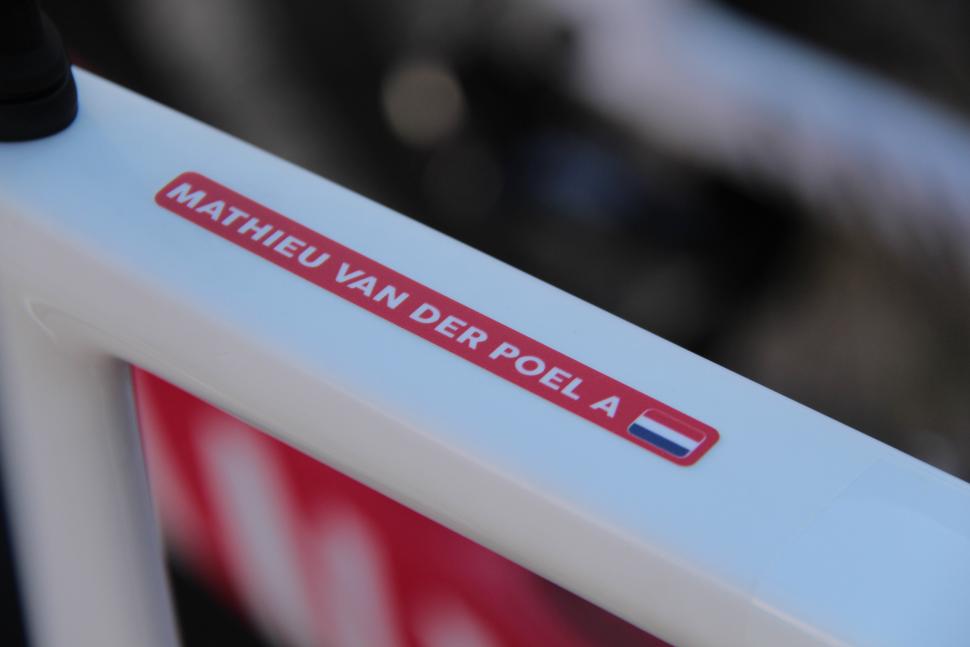

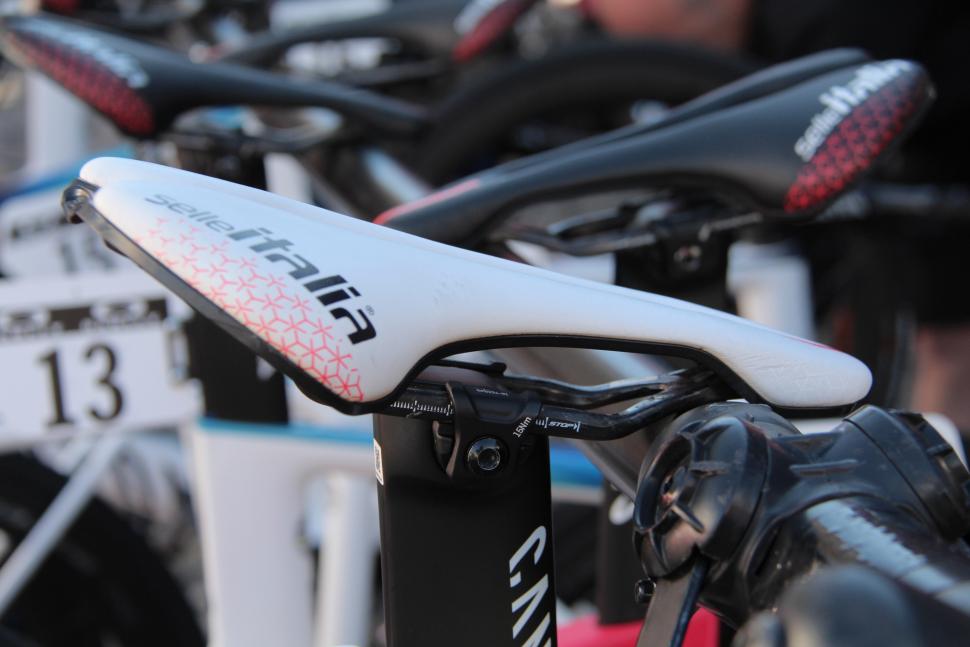

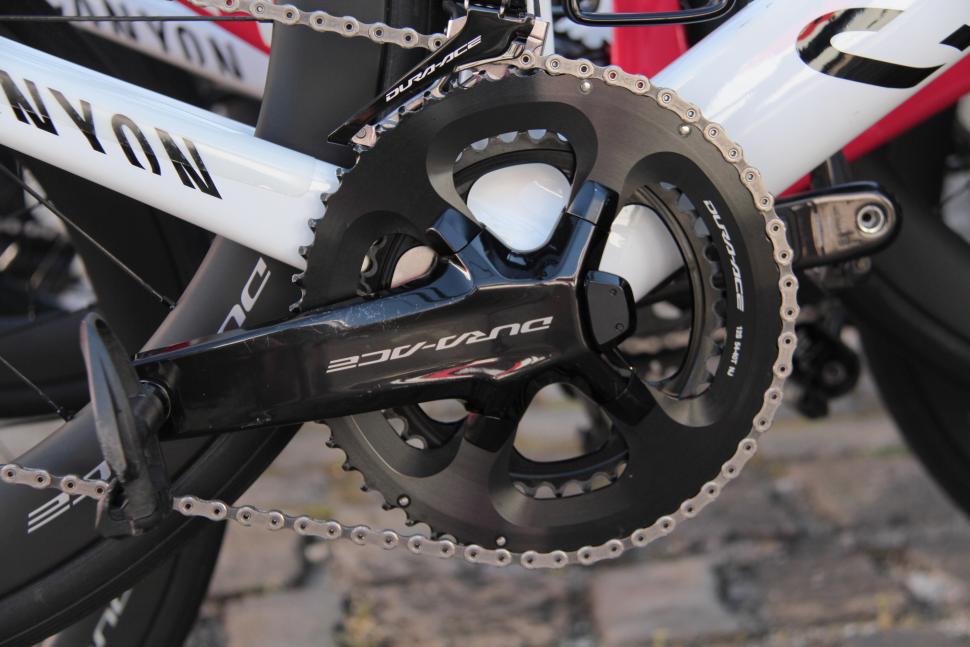
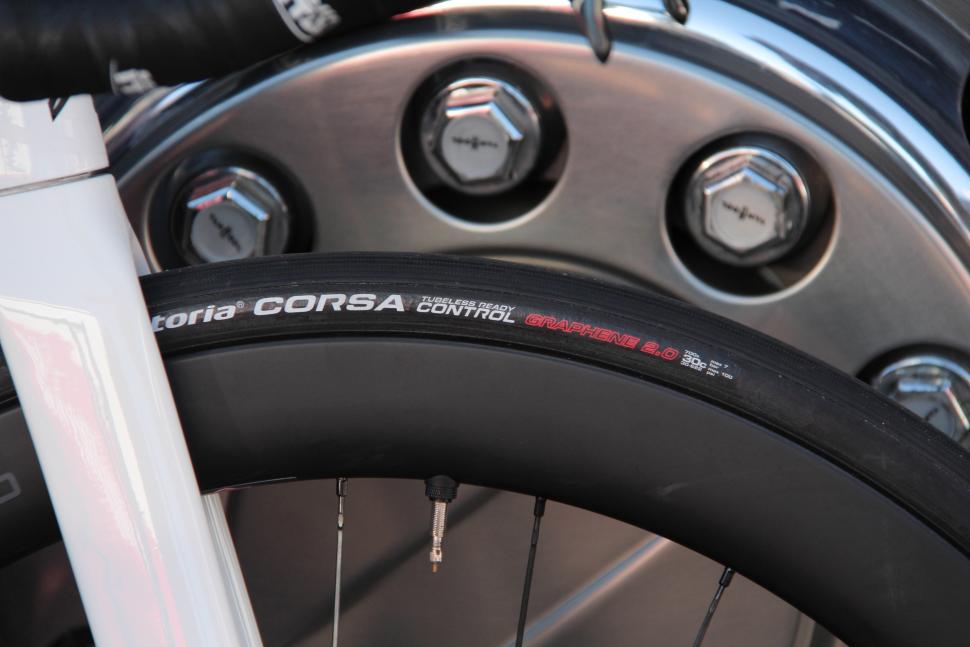
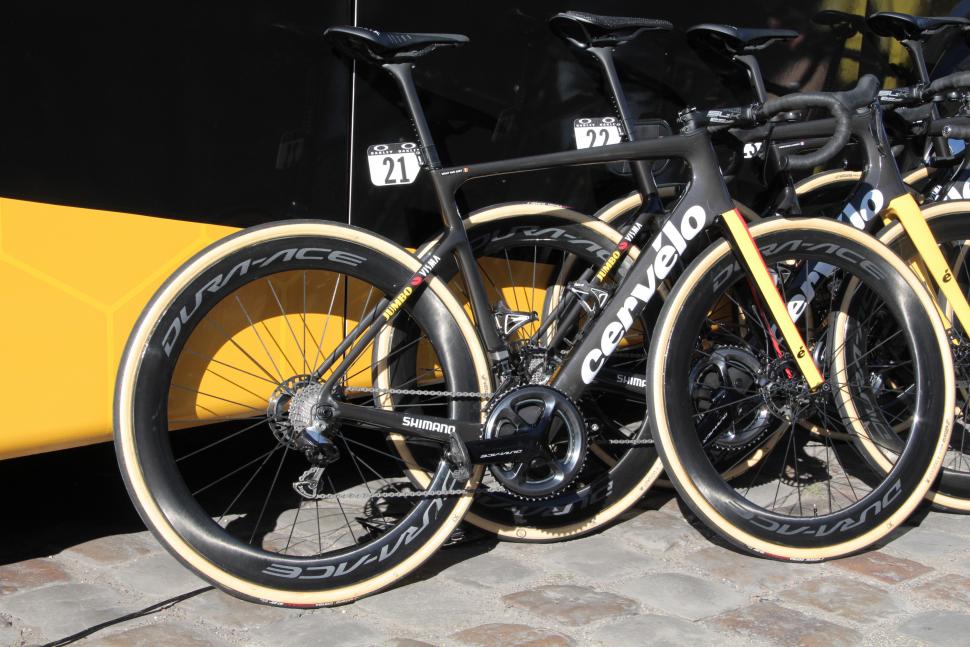
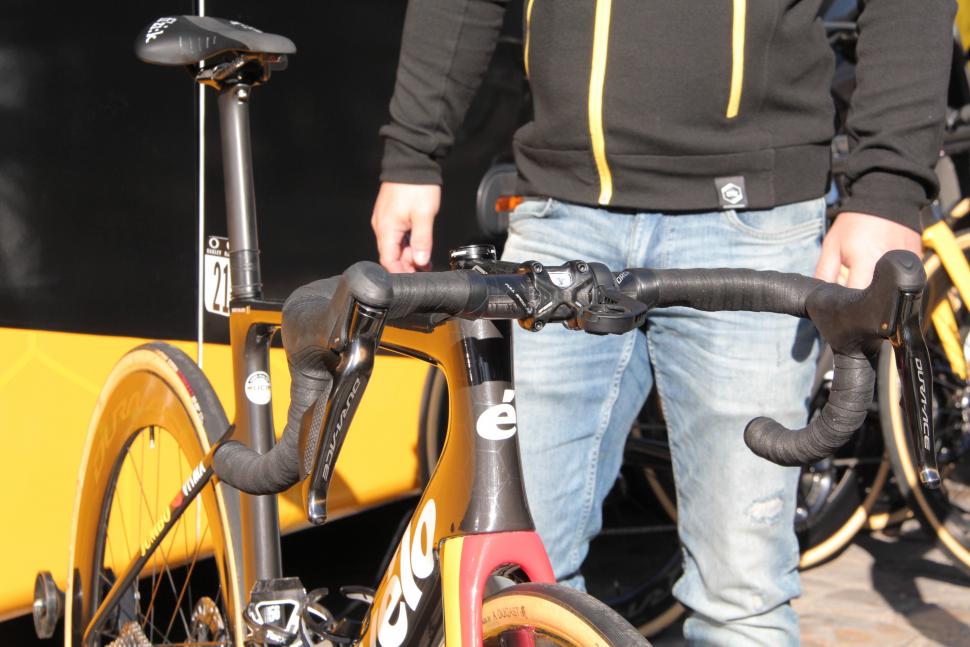
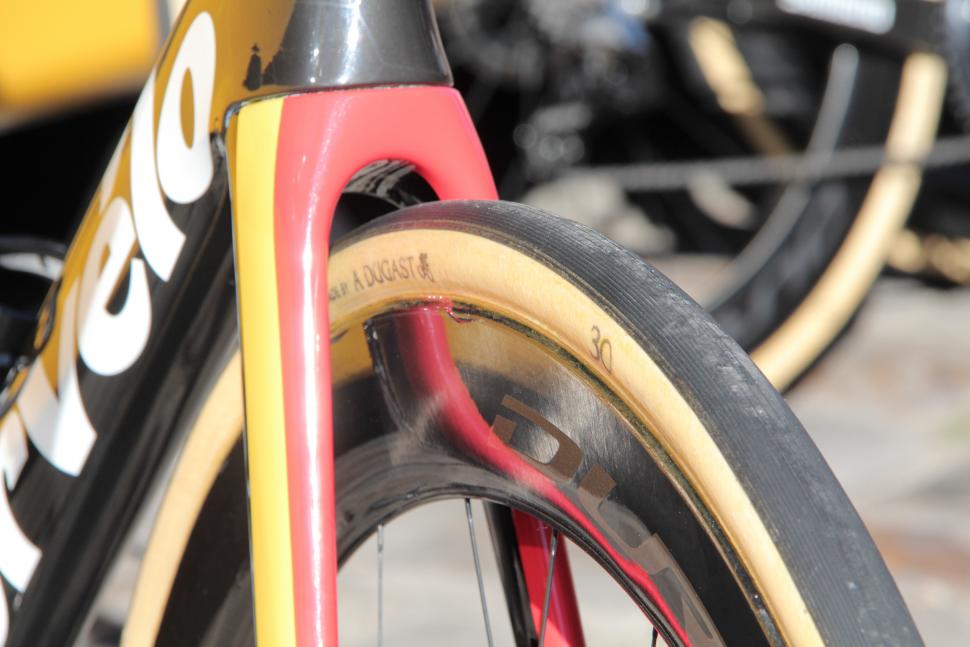
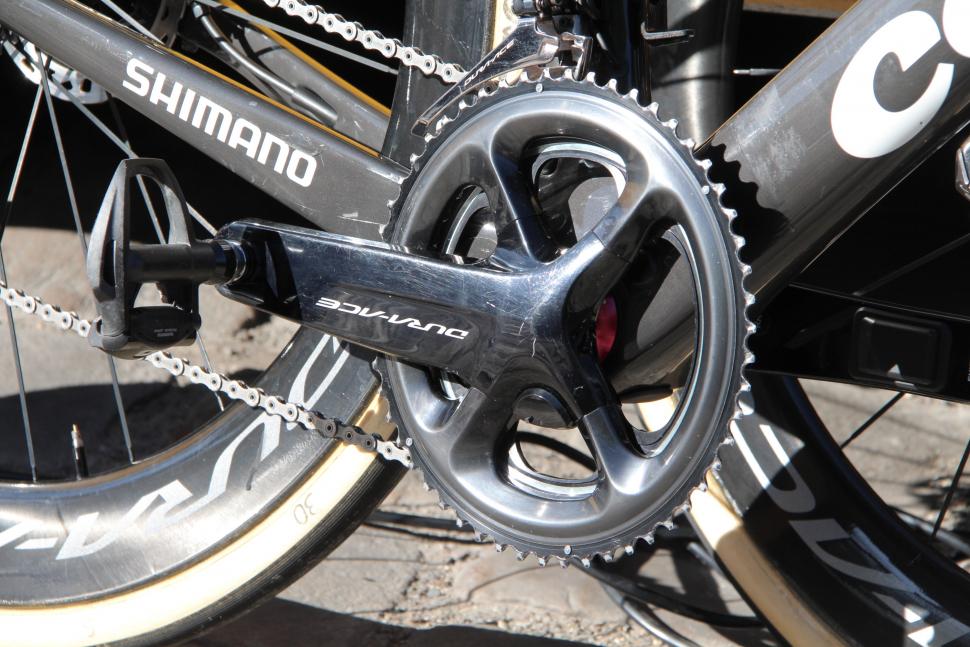
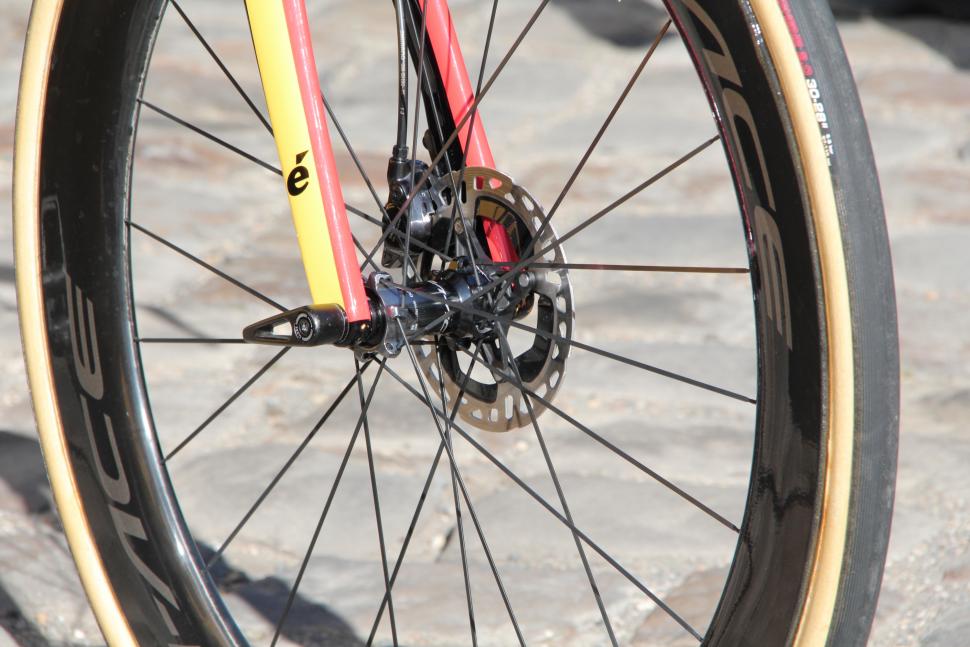

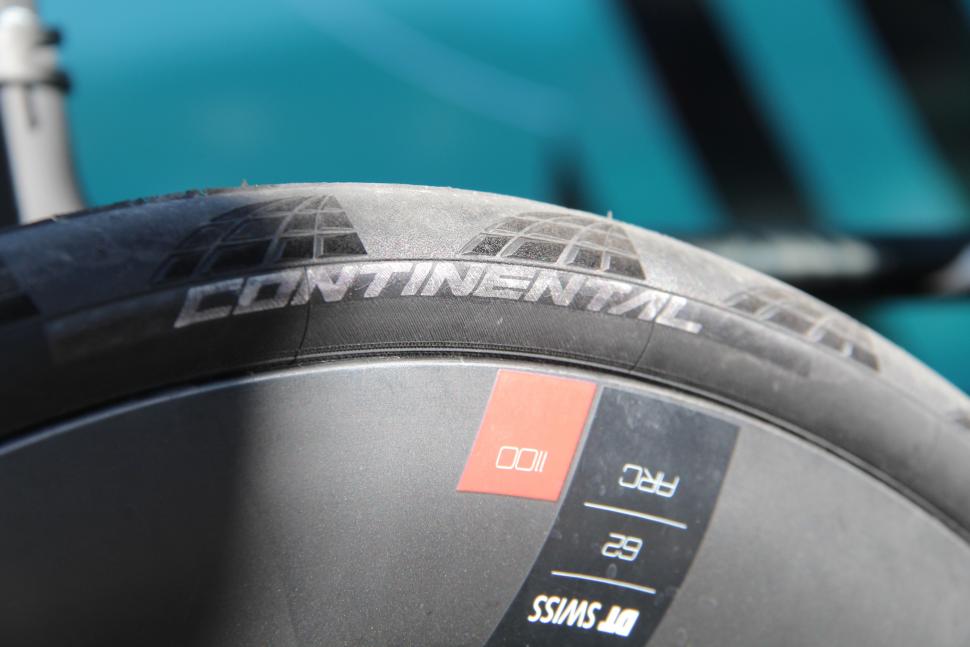
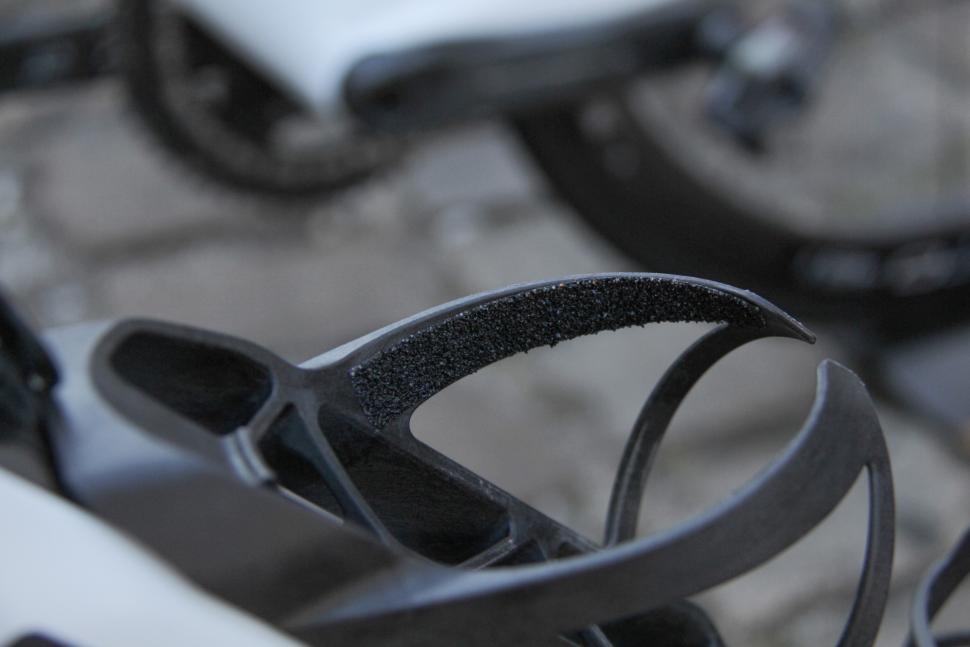
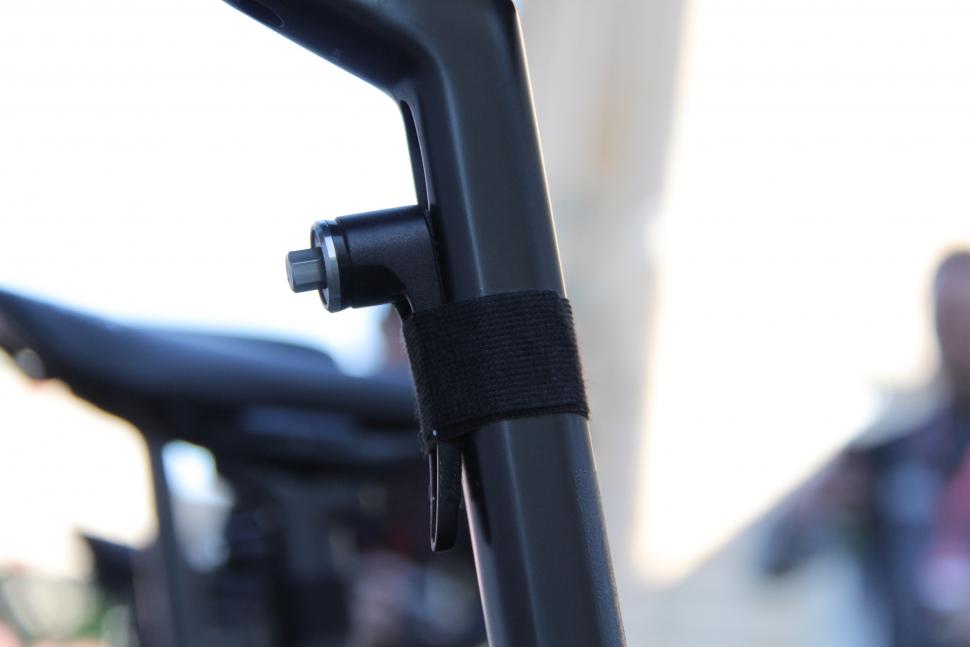
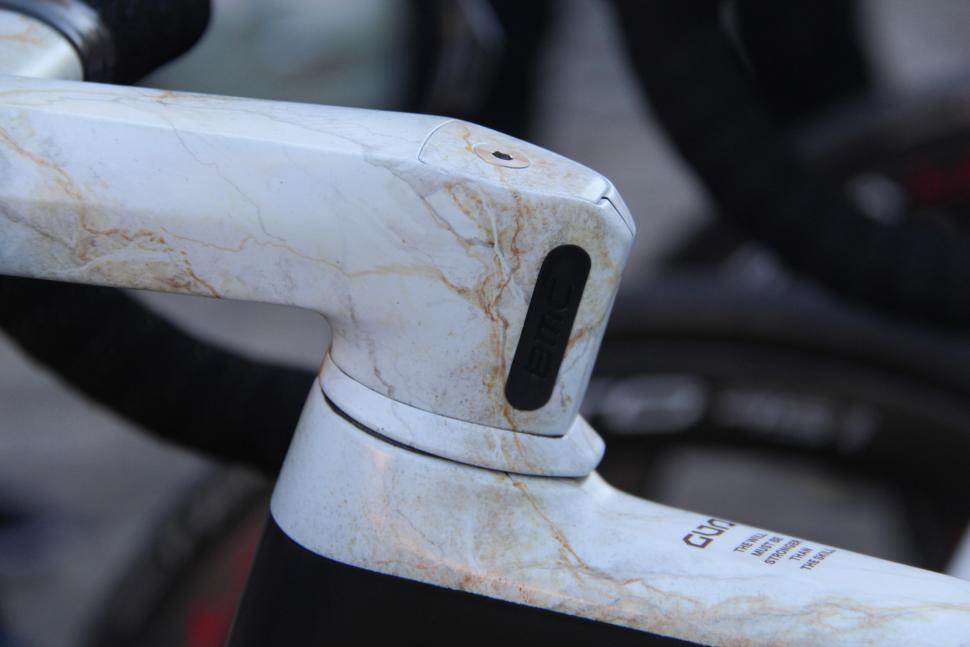

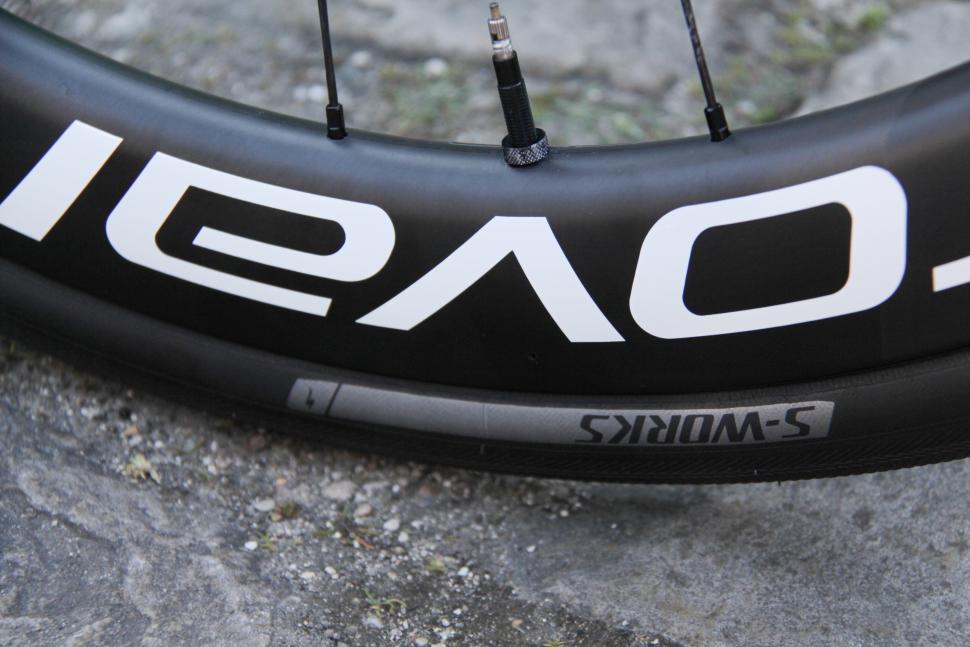
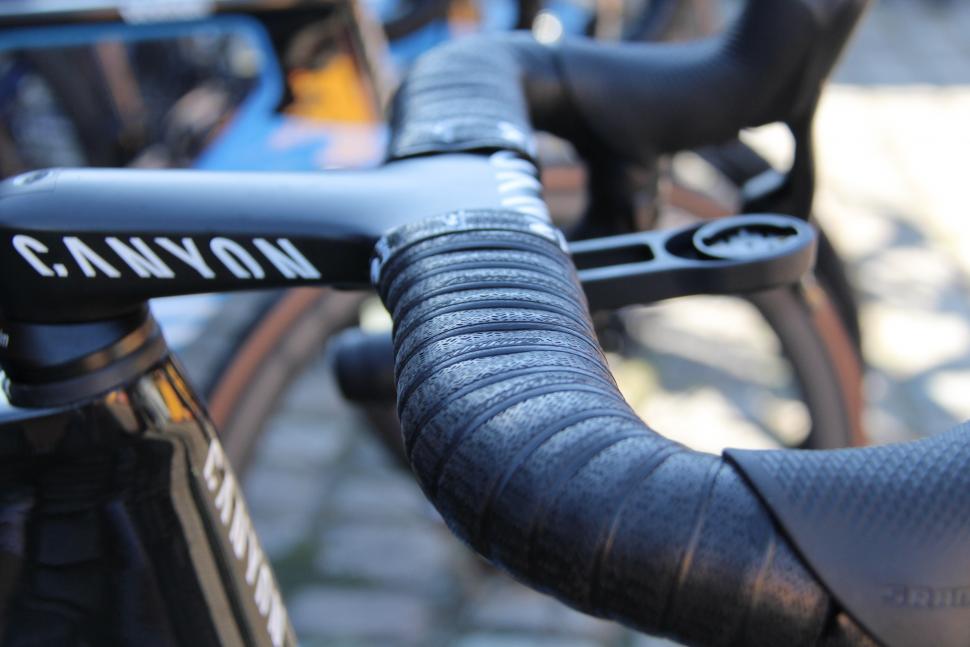
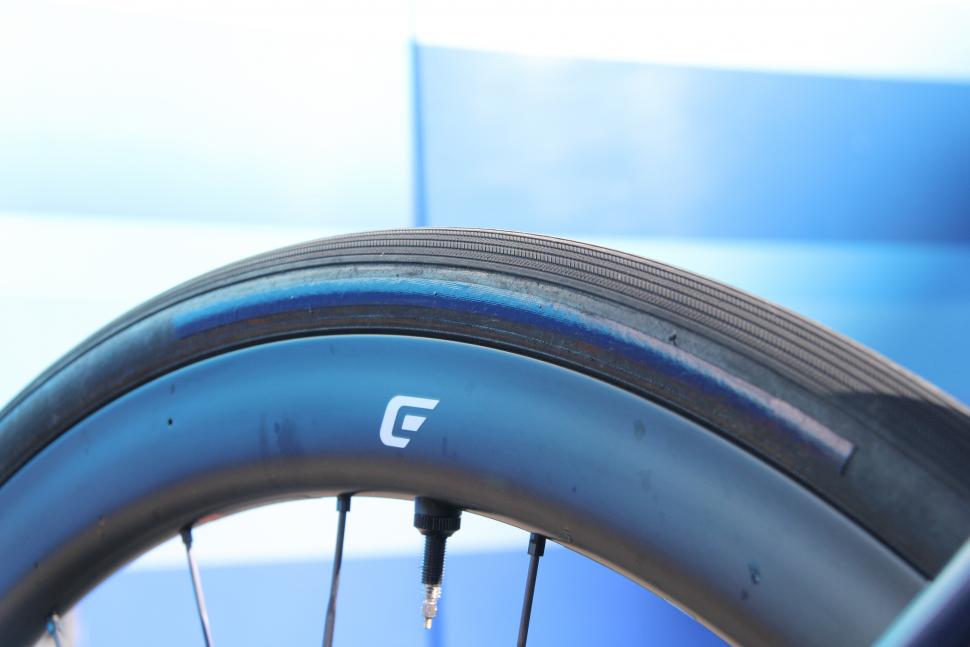
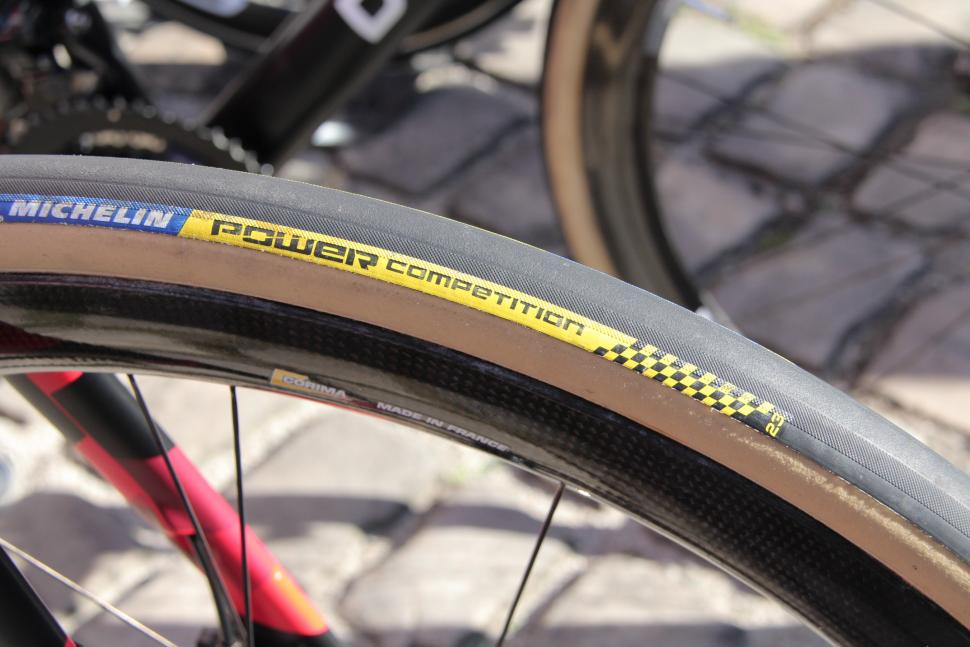

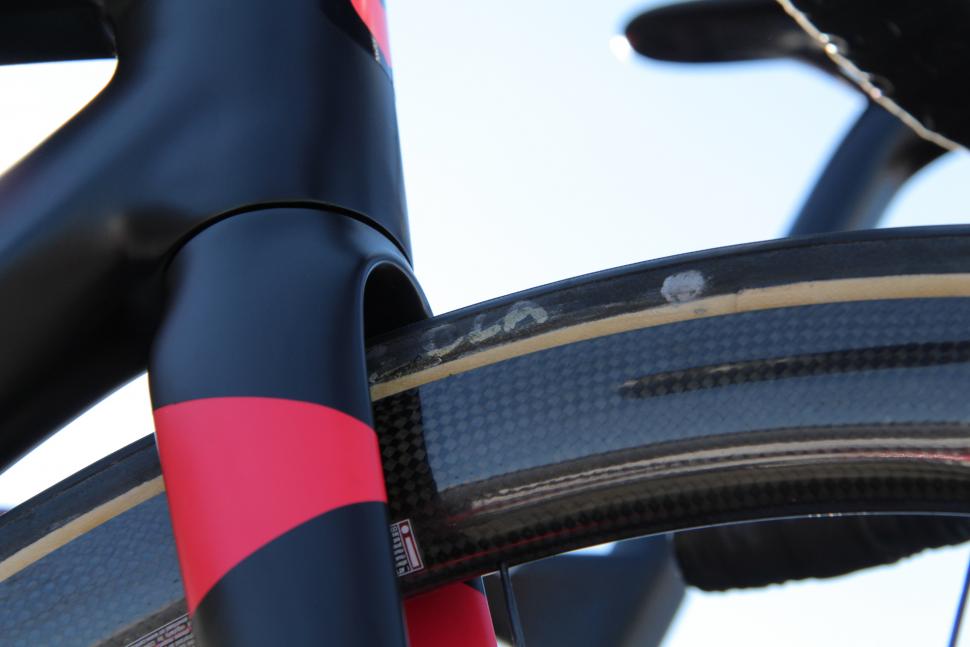
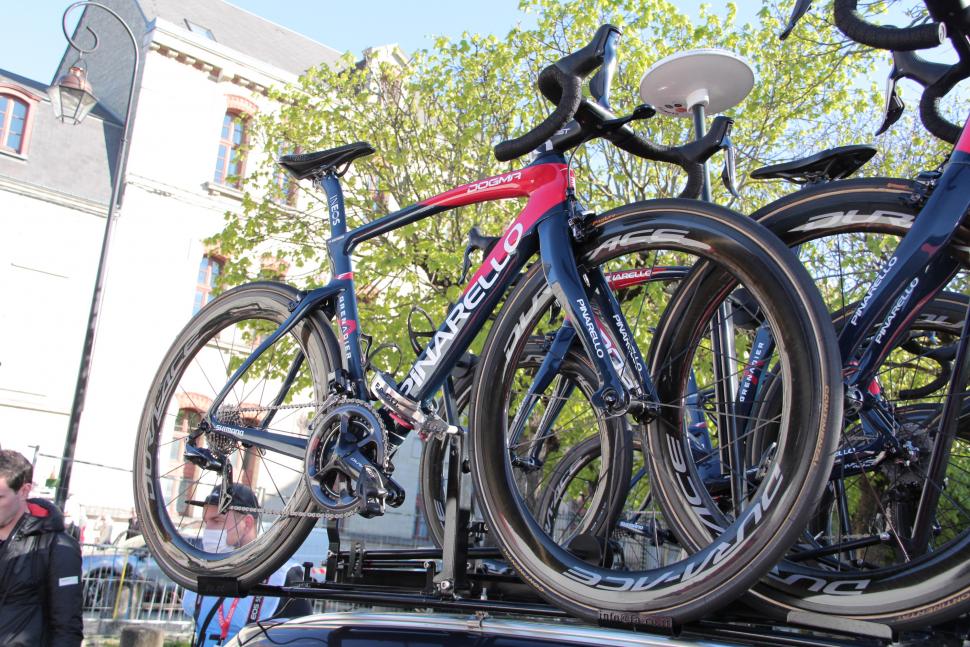
Add new comment
7 comments
Eurosport highlights mentioned more punctures than should have been expected in the dry. Was this more of a tubeless thing?
Would be interesting to see a comprehensive breakdown of what tyres people were riding and which ones punctured - obviously given most riders (I think) were on tubeless then it's inevitable that the majority of punctures were of tubeless tyres. I note that the race was won on tubeless tyres, and at least one notable puncture (van Aert) appears to have been a tubular. I think a lot of the tubeless tyres were paired with inserts too, so would be interested to know how much difference that made.
Other possible reasons for "more punctures than expected" could include faster speeds than normal (fastest ever winning time) and/or lower pressures (possible trade off - higher puncture risk but faster if you don't puncture). Or simply bad luck.
I would also add that even if we reach a conclusion that "tubulars are better for pros riding Paris-Roubiax" that is still hardly likely to make much difference to the average person!
Most of the pro-teams running tubeless run next to no sealant in the tyres. They paint the inside of the tyre with sealant to ensure that any holes seal, but then don't run sufficient sealant to deal with punctures. Apparently most in PR were running inserts to allow them to run flat for a bit (presumably until the riders could get a wheel change).
From a mechanics perspective I can understand them not running a proper amount of sealant - managing the sealant levels for what must be several hundred wheels would be complicated and time consuming. For a race like PR though, especially when it is dry and there are lots of small gravelly stones just waiting to puncture the tyres, it seems a little silly - either run tubeless property (with a full amount of race sealant and inserts), or run tubs
Annoyingly, sealant levels aren't something that we can actually check. I asked the Alpecin mechanic, but he wasn't playing ball - not that I expected him to.
From having ridden some of the sectors, I will say that the speeds may have had something to do with the punctures. As the speeds increase, riders will find the easiest way to go fast and that is generally in the gutter. But here is where all of the really sharp stuff is found. Some of the edges are proper wheel breakers, so maybe the riders spent more time trying to ride in the gutters than usual?
I guess prep is hugely important. Trek seemed to have endless issues, yet Alpecin didn't seem to have so many? Maybe sealant levels had something to do with that.
I wonder if the inserts were what caused Laporte's wheel to collapse. Extra forces in the wheel not normally there when designed?
I doubt it, but who knows. Unless they are running a new system that is markedly different to most on the market currently, I would no expect an insert to add any additional pressure - the force they exert on the rim is less than that of an inflated tyre.
I've seen amatuers' wheels collapse quite a few times when riding on cobbles. Usually that's down to spokes popping or poor wheel builds which mean that the wheel simply can't handle the impact
Weren't both Laporte and van Aert running tubulars and therefore no inserts? While I suppose it's possible that inserts would create different forces than those that the wheel was designed for, it seems more likely that the collapses were simply caused by the impact forces of the cobbles paired with a flat tyre, and an insert therefore might have actually prevented this.
https://road.cc/content/tech-news/two-carbon-shimano-wheels-fold-half-pa...